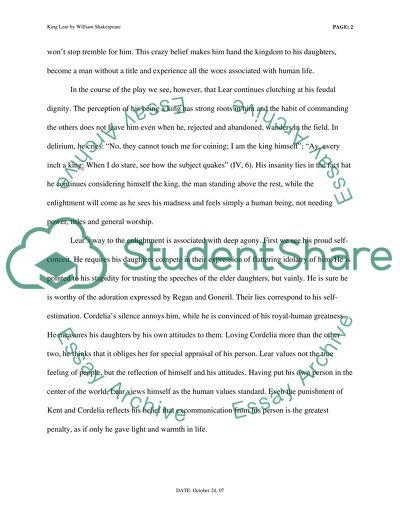Cite this document
(King Lear by Shakespeare Literature review Example | Topics and Well Written Essays - 3092 words, n.d.)
King Lear by Shakespeare Literature review Example | Topics and Well Written Essays - 3092 words. Retrieved from https://studentshare.org/literature/1542660-king-lear
King Lear by Shakespeare Literature review Example | Topics and Well Written Essays - 3092 words. Retrieved from https://studentshare.org/literature/1542660-king-lear
(King Lear by Shakespeare Literature Review Example | Topics and Well Written Essays - 3092 Words)
King Lear by Shakespeare Literature Review Example | Topics and Well Written Essays - 3092 Words. https://studentshare.org/literature/1542660-king-lear.
King Lear by Shakespeare Literature Review Example | Topics and Well Written Essays - 3092 Words. https://studentshare.org/literature/1542660-king-lear.
“King Lear by Shakespeare Literature Review Example | Topics and Well Written Essays - 3092 Words”, n.d. https://studentshare.org/literature/1542660-king-lear.


